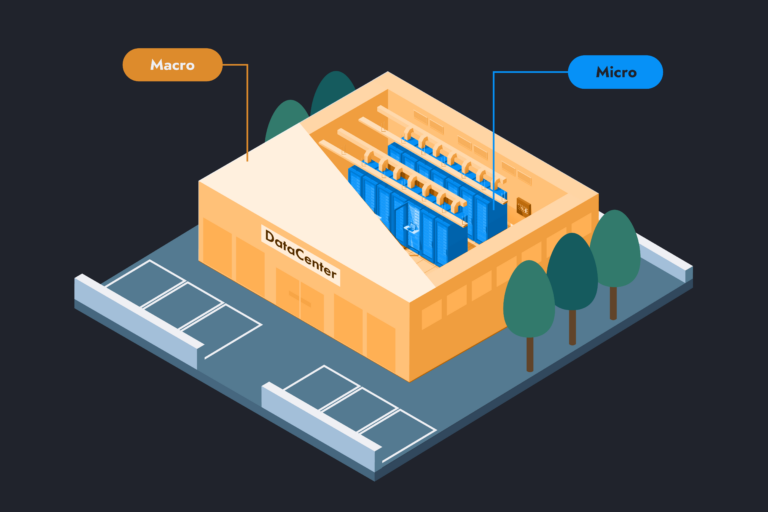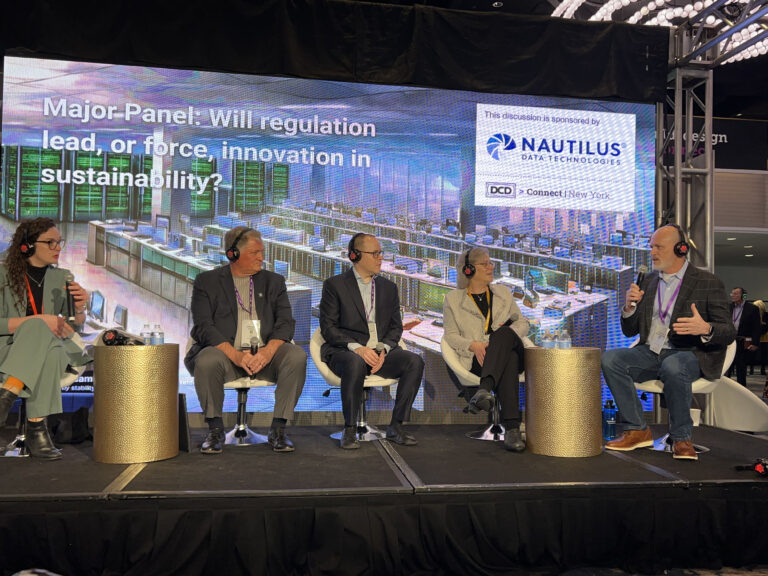The impact climate change and data centers have on one another is becoming more apparent and widely discussed within the industry. While the topic is more pressing with each passing year, the relationship between the two has been tightly intertwined for longer than you may think.
The Past

Data centers grew from server rooms within individual company buildings to individual facilities as the internet boomed in the late 90’s and early 00’s. It became clear quickly that the more data centers that existed, the more energy they used — from 2000-2005 alone the energy usage of data centers grew by 90%.
By 2007, a federal report made by the EPA raised concerns to Congress about everything from the strain this data center growth would have on the power grid, to greenhouse gas emissions from electricity generation needed to support these facilities.
By 2010 Greenpeace got involved, and projected that data centers could consume up to 1 million megawatt hours of power by 2020. They especially called out the use of fossil fuels to power massive data centers, and believed that the IT industry in general would need to become more efficient and sustainable.
While concerns were raised about data center’s impacts on the environment, the climate was impacting data centers as well. At the time, 2000-2010 were the warmest years on record and racked up a sadly impressive number of extreme climate events. Because of this, The Uptime Institute had to update their estimates for maximum intake temperatures in 2006, citing increasing densities and high temperature of air intake negatively impacting computing ability in data centers.
The Present
In the end, Greenpeace’s predictions were massively off, and in 2020 the data center industry consumed around 196 to 400 terawatt-hours, but the EPA did predict the negative impacts data centers would have on the power grid from their report. Singapore, Ireland, and the Netherlands have put limitations on the construction and power requirements of new data centers. These regulations will start to become more and more common as power, land, and water become more scarce.
In the last six months alone, there have been climate incidents directly impacting the ability for traditional data centers to operate successfully.
- The Twitter data center in California was knocked offline by record heat
- Google Cloud and Oracle data centers shut down due to a heat wave in the UK
- China’s worst heatwave in 60 years forced entire factories to close — power was prioritized to citizens instread of businesses entirely
Inclement weather events and temperature changes continues to occur, and while they directly affect data centers, the facilities themselves are using resources that directly impact the climate just the same — collectively, data centers are among the top-ten water consuming industrial or commercial industries in the US. Water being a precious, and finite, resource means that over consumption can negatively impact the environment.
The Future
Soon, the strides the data center industry made with technology and mechanical refrigeration are simply not going to be enough to combat the drastic environmental changes. To future-proof facilities, data center design needs to consider items such as:
- Liquid cooling technologies
- Alternative, sustainable power sources (geothermal, solar, wind, hydroelectric, etc.)
- Increased density to handly high performance compute
- Modular building options for flexible footprints
There are other advanced technologies that can be introduced as well — once fully explored, digital twins may impact the way data centers are designed and how data is stored to best prepare for events that shut down a standard data center today. Digital twins are “interactive systems where you can change things in the digital world, which in turn helps you plan, define and operate assets in the real world.”
While traditionally digital twins have been used for things like industrial applications, scientists are looking to use it as a means to study how it might model climate change — in turn, allowing companies to model how their facilities may react to extreme weather events or new temperature variations.
Companies looking to build or upgrade their data centers may consider using this form of compute to plan for climate extremes and optimize the way their facility is built, and how their data is stored.
The data center industry and climate change have been, and will continue to be intertwined. Now is the time to define how the industry can rise to the challenge, and protect itself for the future.


